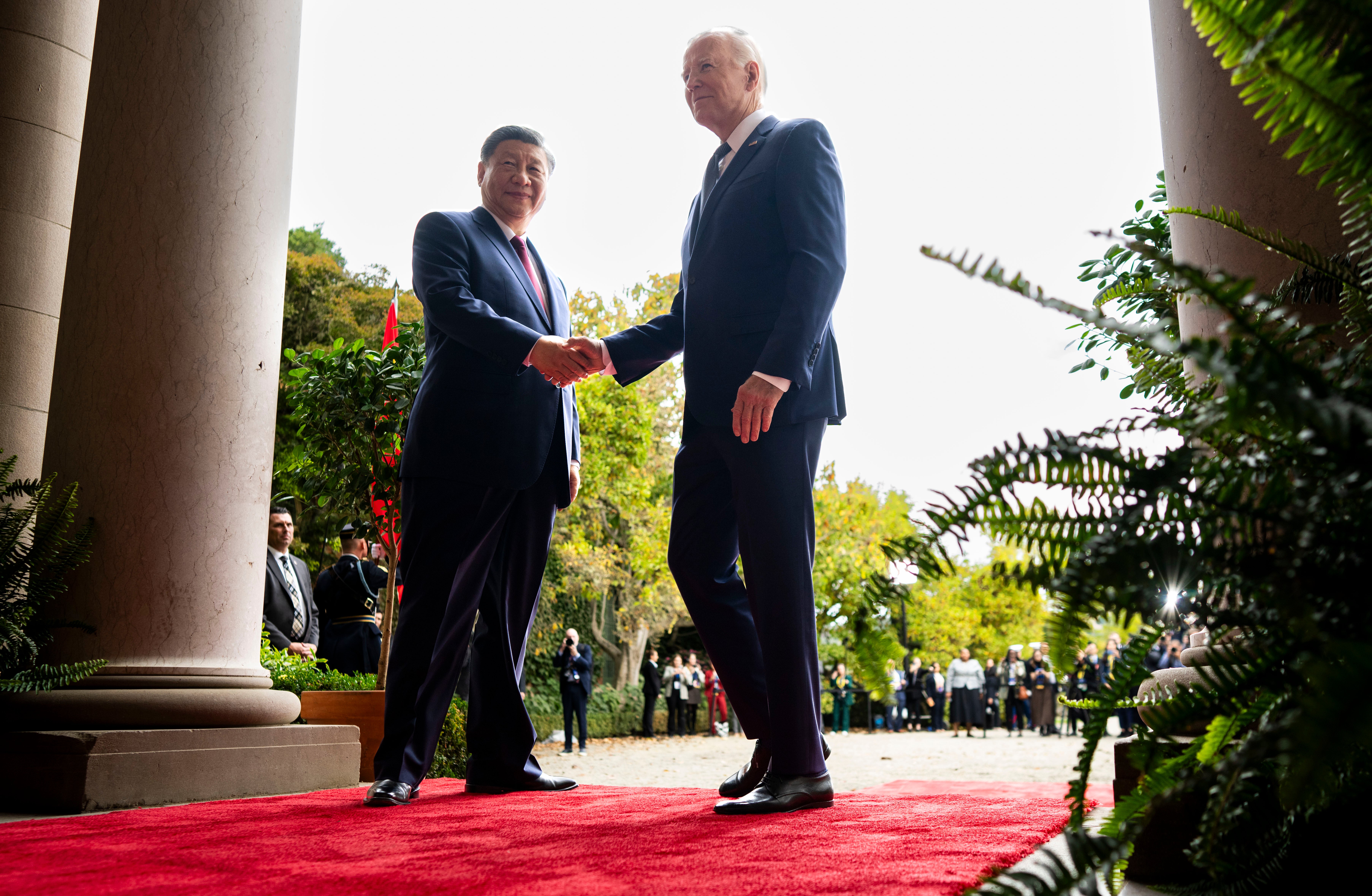China's agreement expected to slow flow of fentanyl into US, but not solve overdose epidemic
China has agreed to curtail shipments of the chemicals used to make fentanyl, the drug at the heart of the U.S. overdose epidemic

Experts say new steps China has agreed to will eventually reduce the flow of the deadly opioid fentanyl into the U.S., but that alone will not stem the overdose crisis killing Americans at a record rate.
President Joe Biden and Chinese President Xi Jinping announced at a meeting Wednesday in California that China is telling its chemical companies to curtail shipments to Latin America and elsewhere of the materials used to produce fentanyl, which is largely finished in Mexico and then smuggled into the U.S.
China has also resumed sharing information about suspected trafficking with an international database.
“It’s a step in the right direction because not doing this would be negligent,” said Adam Wandt, an associate professor of public policy at John Jay College of Criminal Justice. “If this is a diplomatic option that we did not take, every fentanyl death over the next decade would be on our heads.”
But he and others described the steps as necessary in addressing the overdose crisis in the U.S. — but not sufficient.
Wandt said the steps should reduce the amount of fentanyl in the U.S., though when that happens depends on how much of the chemicals are already in possession of Mexican cartels. And even if fentanyl is eradicated, he said, “they will switch to another drug, which I predict will be even more lethal.”
Kevin Roy, the chief public policy officer at Shatterproof, a national group dedicated to combatting the addiction and overdose crisis, said that the steps announced were crucial, but they still have to be carried out.
“It’s only one part of a bigger picture,” Roy said.
He was also concerned that the nations did not reach any agreements on how to deal with laundering drug money through China, an issue that Rahul Gupta, director of the Office of National Drug Control Policy, identified at a congressional hearing this year as another major problem.
Fentanyl emerged as a widespread problem in the U.S. about a decade ago as there were crackdowns on prescribing opioid painkillers, which were linked to soaring death numbers already.
In the early days, it was largely shipped from China to the U.S., easily concealed in envelopes and small packages. Fentanyl’s potency makes it appealing to drug suppliers because it’s easy to ship. And because it’s made from chemicals in labs, it doesn’t rely on growing crops for drugs such as heroin, cocaine or marijuana.
Pushed by then-President Donald Trump, China agreed in late 2018 to crack down on shipments of finished fentanyl and some of its precursors. After that, more production moved to Mexico — with the raw materials still coming largely from China.
Synthetic opioids are now the biggest killers in the deadliest drug crisis the U.S. has ever seen. In 2014, nearly 50,000 deaths in the U.S. were linked to drug overdoses of all kinds. By last year, the total was more than 100,000, according to a tally by the U.S. Centers for Disease Control and Prevention. More than two-thirds of those deaths — more than 200 per day — involved fentanyl or similar synthetic drugs.
The powerful drugs are showing up in different places in the nation's supply of illicit substances. It's in counterfeit pills and cocaine, in some cases causing overdoses in people who have no idea that they're using fentanyl. It's also sought out by some people with opioid use disorder. In many areas of the country, it's mostly replaced the supply of heroin.
Xi said at a dinner in San Francisco Wednesday: “China sympathizes deeply with the American people, especially the young, for the sufferings that fentanyl has inflicted upon them.”
Biden said of the agreement: “It’s going to save lives, and I appreciate President Xi’s commitment on this issue."
The tone has changed from earlier this year. In April, Wang Wenbin, a spokesperson for the Chinese Foreign Ministry criticized the U.S. for blaming China for the precursors, saying they're “ordinary chemicals sold through normal trade.” And China blasted the U.S. over the summer for imposing sanctions on Chinese anti-drug efforts rather than praising their efforts.
A key part of the new announcement from China is that it is sharing information on the drug trade. It's resumed submitting information to the International Narcotics Control Board for the first time in three years and agreed to launch a counternarcotics working group with the U.S.
“As we know only too well, the supply piece of this is just one part and we’re not going to solve the fentanyl overdose issue solely by reducing the supply,” said Regina LaBelle, who directs the Addiction and Public Policy Initiative at Georgetown University’s O’Neill Institute and served as acting director of the Office of National Drug Control Policy under President Biden.
She said that it's significant that China and the U.S. are dealing with fentanyl, but it's an issue that demands cooperation from other countries, too. Xi was meeting Thursday with Mexican President Andres Manuel Lopez and Biden was scheduled to meet with him on Friday.
The rise of fentanyl across the U.S. has intensified efforts to reduce the danger. Naloxone, a drug that reverses overdoses, has become more widely available, including without prescriptions. A growing number of places are allowing drug screening kits so users can find out if their drugs include fentanyl. Harm reduction groups also preach that people using drugs should use a small amount first to test for adverse effects and that they should not use alone.
“We’re making investments in the United States in addressing prevention, treatment, recovery and harm reduction," LaBelle said. “All of those things have to continue to be ramped up.”
___
Associated Press Reporter Didi Tang in San Francisco contributed to this article.
Bookmark popover
Removed from bookmarks